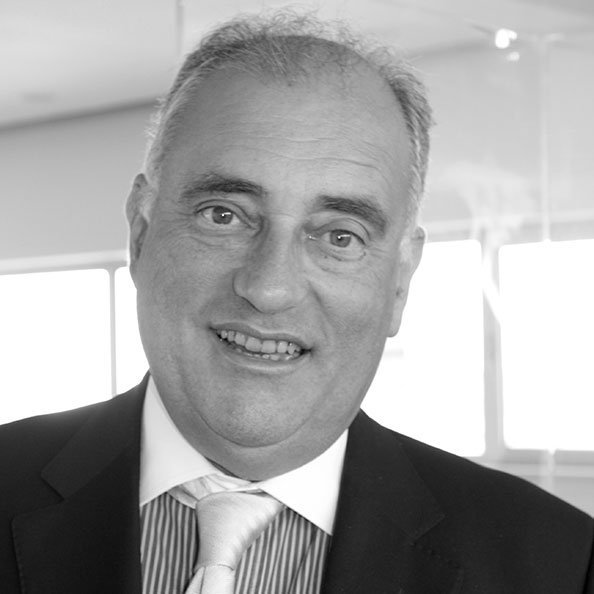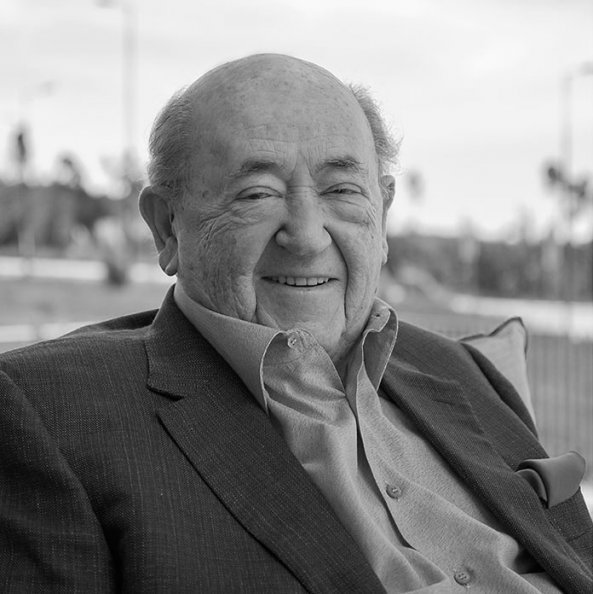
Concerning the future of the real estate sector
António Rebelo de Sousa

What increases your property’s value?
Agnieszka Kijonka
50 years for Portugal
André Jordan
Founder of the André Jordan Group

I came to live in Portugal in 1970 because after having visited the country while my father lived in Estoril and having spent some time here winding up his business affairs, following his death in 1967, I was convinced, after experience in Argentina and Uruguay, in the United States and in France, and having spent time in Venezuela, Puerto Rico and the Bahamas, that, not living in Rio de Janeiro, Portugal, and in particular Lisbon and the Algarve, enjoyed the urban, climatic, human and social characteristics that I was looking for to develop integrated housing and leisure projects for a high-level international market.
My assessment turned out to be correct and, over the almost 50 years I’ve been here, I have created the two things that matter most to me in life – my four children and eight grandchildren, and my developments.
The Portugal that I identified in the 1960s was, as is commonly said in Brazil «Slow, coming to a halt».
In the years that followed, we have witnessed extraordinary developments across all areas: urban development, industry, commerce, health, education and social peace, together with a significant increase in longevity, given the great ability of the Portuguese to adapt to what is good and endure what is bad. Nevertheless, it is important to recognise that we remain out of step, economically, with our European Union partners and risk missing the opportunity generated by the success of tourism and residential real estate for foreigners, as well as nationals. We have let ourselves be bogged down by the manipulation of statistics and the awards offered by organisations that market them.
Tourism and the related real estate activity have grown over the years almost spontaneously, thanks to our well-known qualities and attractions, with a small amount of promotional activity either by the state or privately. These, in turn, seem barely suited to working together to attract and retain our natural customers.
The government has stimulated foreign investment in the real estate market, thanks to the Golden Visa and Non-habitual Residency programmes. Despite some criticism within Portugal and more coming from abroad, such programmes exist on a much larger scale in our competitor countries, such as Spain.
It is imperative that we consolidate a process that APEMIP chairman Luís Lima refers to as «life partners: Real Estate and Tourism», in that this partnership has a crucial impact on employment and construction. We must resist the pressure of European banking authorities against these sectors, which is down to the coyness of the Portuguese economic and financial sector authorities in making people understand the strategic importance that these two industries have for the employment and well-being of the Portuguese.
On the other hand, there is a lack of willingness on the part of entrepreneurs within the sector and tourism authorities to jointly promote cultural and artistic programmes that appeal to the more sophisticated segments of our target markets and who are natural customers of the simplicity, good taste and hospitality of the lifestyle of our country.
We must recognise the shortcomings of the attractions we have to offer in terms of museums and entertainment, sectors that are much more developed and abundant in other European countries, from which the majority of visitors to Portugal come.
This is why for several years now I have been following the absurd debate about the suitability of opening a Museum of the Discoveries. Many of our visitors, specifically Europeans, have studied our discoveries at school and come to Portugal eager to see an illustration of this saga. The great number of visitors to the Tower of Belem and the Fortress of Sagres provide proof enough. Their historical interest is of great appeal, despite them having nothing on display.
Berlin has a Jewish Museum, showcasing Jewish history, which includes recognition of the Holocaust. The same is true of Warsaw. So let us abandon our historical guilt complexes.
Another major shortcoming in the main Portuguese tourist areas is the absence of a shopping centre dedicated to Portuguese production of quality items. By this I mean tableware, crystal ware, art, fashion, furniture, rugs…The majority of what is sold on the Avenida da Liberdade, for example, is foreign products, meaning that the national benefit of this great commercial movement is practically zero. Visitors have trouble finding Portuguese products. I would suggest the creation of BEST OF PORTUGAL shopping centres in Lisbon, Oporto and the Algarve, which would not only promote Portuguese industries, but also be a major tourist attraction.
The truth is that our other competitors, such as Turkey and Greece, have much more to offer in terms of museums and the preservation of their great historical monuments, and they have major music and art festivals, which are repeated every year, ensuring a loyal clientele.
With the aim of gathering contributions from Portuguese personalities and foreign ones, who live or have lived here, getting them to help with their experience, which can be very valuable for the development of tourism, I propose the formation of a Strategic Advisory Council for the Promotion of Tourism, to provide advice and suggest promotional activities, with the possible hiring of specialised national and international organisations.
Lisbon, Oporto, the Algarve and Madeira are well served in terms of hotels and restaurants, but they lack events and nightlife.
The announcement of the construction of a new congress centre in the FIL, in the Parque das Nações, will ensure the ability to host major international events, such as the ‘Web Summit’, which, just at the right time, João Vasconcelos has managed to secure for us and for which Lisbon’s mayor has had the realism and the courage to ensure it will be held here in the long-term.
After 50 years in Portugal I have no complaints and only gratitude, and as a Portuguese, which I am also, I am entitled to criticise.





